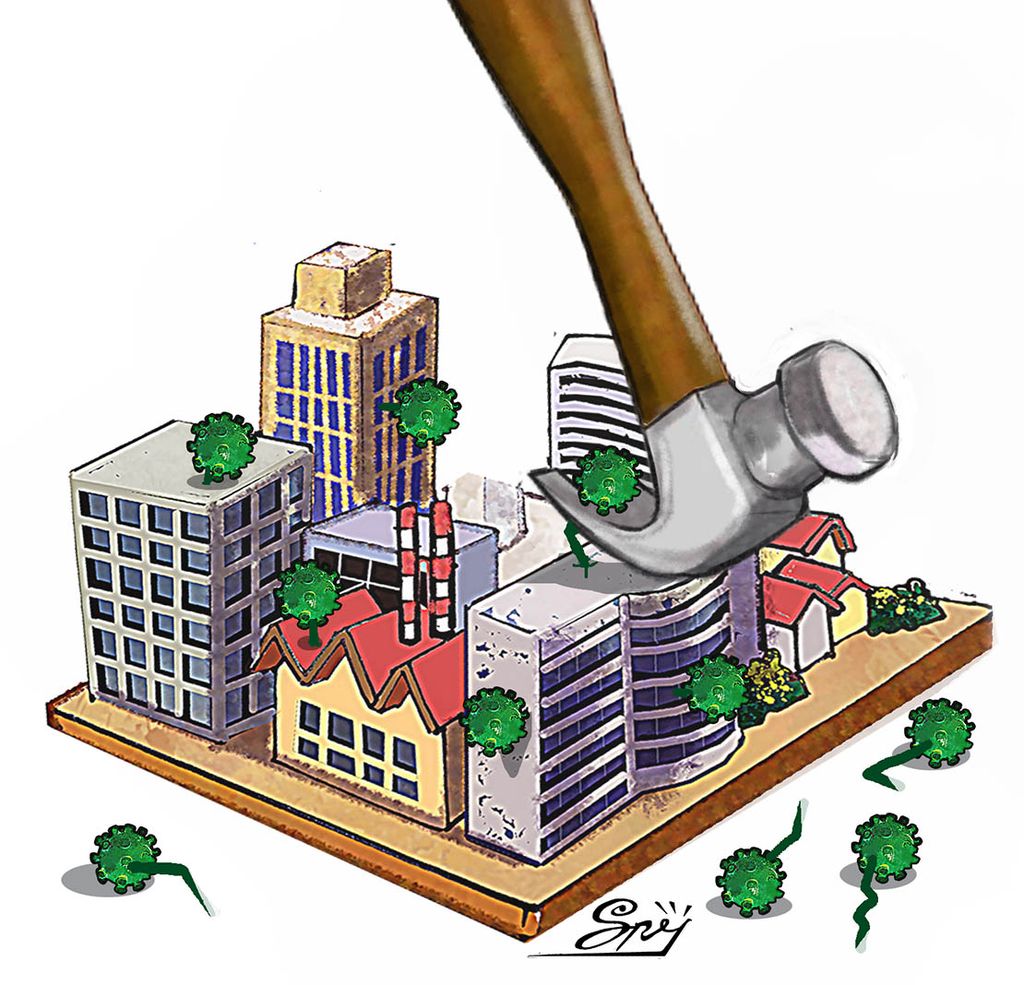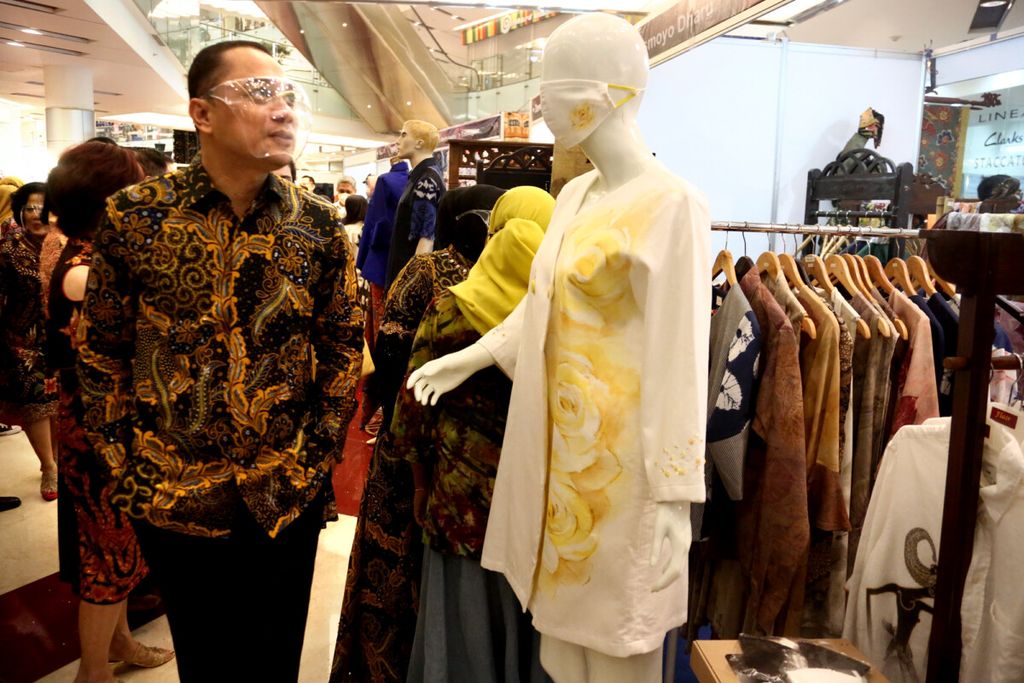Transition of Economic Recovery
The problem is, economic growth this year and next has not yet reached 6 percent, a condition McKinsey says is required for Indonesia to become the world's 7th largest economy by 2030.

The latest edition of the six-monthly World Bank publication, Indonesia Economic Prospects, December 2021, is subtitled “A Green Horizon, Toward a High Growth and Low Carbon Economy”. The report projects that Indonesia's economic growth will reach 3.7 percent this year and 5.2 percent next year if it faces no significant challenges.
That uncertainty has resulted from the pandemic is clearer than ever. In addition to uncertainty, the pandemic has also increased the urgency for transformation and transition. Transformation is needed even more when uncertainty grows. Transition becomes more urgent when not many choices are available.
Also read:
> Divergence of Economic Recovery
The pandemic has limited our space for movement as well as our choices. However, at the same time, there is room for innovation. The only way to deal with uncertainty is to create certainty. For this reason, a fundamental overhaul is required in many areas.
Post-pandemic economic recovery has at least two challenges. First is how to follow up recovery with increased productivity so the economy grows optimally. Second, recovery is an important phase in the transition to a low-carbon economy. The question is how these two goals can be achieved when our space is increasingly limited by the challenges of the pandemic.
Will the Indonesian economy become the world's 7th economic power in 2030 as projected? Global consulting firm McKinsey, in its report Ten Ideas to Unlock Indonesia's Growth After Covid-19, emphasizes that this opportunity remains wide open. If Indonesia can quickly return to its pre-pandemic growth rate, it can further accelerate improvement in the country’s economic position.

Surabaya Mayor Eri Cahyadi is reviewing MSME outlets at the opening of Surabaya Fashion Week (SFW) 2021, at the Main Atrium of Grand City Surabaya, Sunday (31/10/2021).
The question is how to return to the growth level before the pandemic, because until now, we don't even know when the pandemic will end. However, the situation is the same for all countries in the world.
In the last decade, Indonesia's economic growth averaged 5 percent. Growth peaked at 6.3 percent in 2017 before falling back to 5 percent in 2019. In 2020, the economy contracted 2.2 percent and in 2021, it began to enter the recovery phase.
The problem is, economic growth this year and next has not yet reached 6 percent, a condition McKinsey says is required for Indonesia to become the world's 7th largest economy by 2030. However, keep in mind that the post-pandemic situation and future challenges could also change, so optimal growth may not reach 6-7 percent.
In addition, how should we accelerate our efforts to enter a growth phase that produces low carbon emissions?
Even so, McKinsey's recommendations are still relevant. Our main problem as a nation is how to increase our resilience to pandemics, especially by strengthening the health system. Furthermore, how can we accelerate technology adoption so as to create new and unseen opportunities? In addition, how should we accelerate our efforts to enter a growth phase that produces low carbon emissions?
Technology adoption
In more technical terms, the challenge for the Indonesian economy is how to accelerate the agricultural transformation through a more systemic adoption of technology. The sector’s transformation must be accompanied by the establishment of a more efficient supply chain at the national and regional levels. This way, the sector’s growth will bring greater value added for the domestic economy. Productivity will rise, and even if the growth rate is lower, its impact will be greater.
Global tourism has been the business sector hardest hit by the pandemic. Changing the orientation to domestic tourism is one way out. Therefore, the development of regional physical infrastructure is one of the important factors that support these efforts. Innovation is also needed in developing new tourist destinations that are more suited to post-pandemic leisure demands.
/https%3A%2F%2Fkompas.id%2Fwp-content%2Fuploads%2F2021%2F11%2F21b9ca2c-c45a-40cf-b0c8-757f5dc4a6ed_jpg.jpg)
Trading business activities are slowly expanding in the Petojo area, Central Jakarta, Tuesday (9/11/2021).
In essence, the pandemic should be used as an opportunity to accelerate transformation in various sectors through the adoption of technology. The value-added of technology adoption in developing countries such as Indonesia should be higher than in developed countries. It is an opportunity that we should take advantage of during the post-pandemic recovery phase.
Economic transformation in developing countries will also result in better performance than developed countries because room for growth is still wider, on the condition that the transformation is carried out within the framework of structural transformation that is managed systematically.
The World Bank has also conveyed a similar message. The pandemic must be used as an opportunity to carry out various transformations to increase pandemic resilience, as well as in anticipating the transition to a low-carbon economy.
In particular, special attention should be given to the transition and transformation of the state electricity company (PLN) as the country’s main electricity provider. The PLN’s transition must be carried out carefully, so the shift to low-carbon energy sources does not cause turmoil. If it is not prepared well, the plan to halt the use of coal could lead to an energy shortage, which would certainly be counterproductive to the effort to spur economic growth.
The transition to (high) growth with low carbon emissions is a challenge for almost all countries. We are not alone in achieving high (optimal) post-pandemic growth and towards an environmentally oriented economy. Therefore, speed of consolidation is key to the effort to enable Indonesia to grow faster than other countries. In this way, Indonesia can realize its potential to become one of the world's largest economies in the next few years.
/https%3A%2F%2Fkompas.id%2Fwp-content%2Fuploads%2F2021%2F02%2F20210209TOK01_1612880465.jpg)
President Joko “Jokowi” Widodo delivers his speech virtually during the commemoration of 2021 National Press Day in Ancol, North Jakarta, on Tuesday (9/2/2021. In his address at the event themed “Rising from the Pandemic, Jakarta as the Gateway to Economic Recovery with the Press as the Accelerator of Change”, the President expressed appreciation for all members of the press who had helped the government in educating the public to be disciplined in adhering to health protocols to prevent the spread of the novel coronavirus.
To that end, the World Bank has made several recommendations. First is to be better prepared to face the transition of Covid-19 from a pandemic to an endemic. Second is to maintain flexible fiscal and monetary policies in order to continue stimulating economic growth while anticipating stability risks. Third, ensure the availability of sufficient fiscal space and efforts to mitigate the pandemis as well as to encourage economic growth. Fourth, continue with structural reforms towards inclusive and environmentally oriented economic growth.
The pandemic has opened greater opportunities for accelerated transformation and transition towards a sustainable economy.
A. Prasetyantoko is rector of Atma Jaya Catholic University
(This article was translated by Hendarsyah Tarmizi)